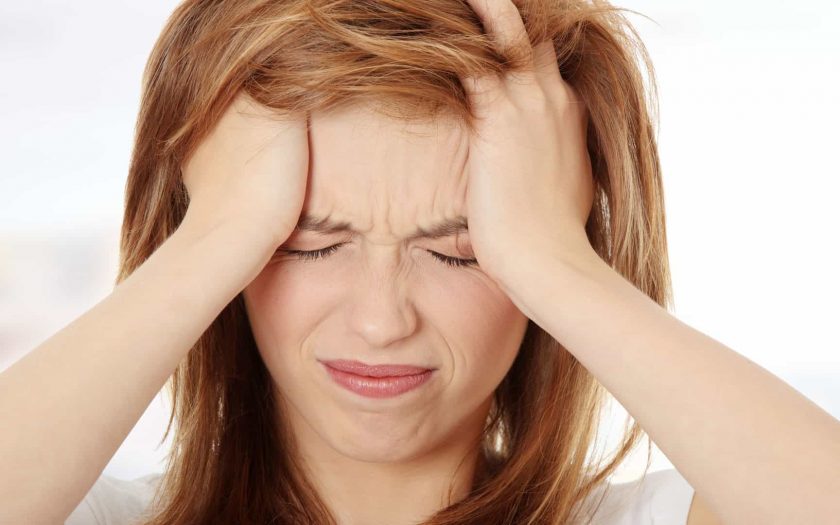During exercise, some people experience severe pain in the back of the head, resembling a severe spasm. Pain can be throbbing, prolonged and provoked by strength training. This often happens during the last sets of strength training. The main reason is the change in diastolic and systolic pressure.
Exhausting exercises.
Because muscles can become inflamed during exercise, it can lead to increased blood pressure.
Excessive loads.
Intense exercise can raise blood pressure and cause pain.
Consumption of energy drinks.
Drinking large amounts of energy drinks or combining energy drinks with other stimulants can harm the body. This can cause a sharp rise in blood pressure up to a hypertensive crisis, arrhythmia or heart attack. Such drinks deplete the nervous system and force other systems to work with maximum efficiency.
Steroid drugs.
These drugs have such a side effect as water retention, which increases blood pressure.
Poor nutrition.
Excess salt and pepper retains water. Water retention leads not only to swelling of the extremities and face, but also to swelling of the brain, which increases intracranial pressure. If you exercise intensely, avoid foods high in salt and pepper.
Excess sweets injure the inner surface of blood vessels. Scars form on the damaged areas, the vessels narrow in diameter, and blood flow decreases. In this case, the heart is under severe stress. As a result, blood pressure rises and headaches increase.
Stress and anxiety.
Exercise is stressful for the human body. Excessive stress can cause headaches.
Also, if you have chronic stress at work, it is best to leave hard work and do yoga or Pilates.
Dysfunction of the autonomic nervous system.
The autonomic nervous system (ANS) regulates the work of blood vessels and internal organs. It is divided into sympathetic (SNS) and parasympathetic (PNS) systems. The action of SNS and PNS is opposite to each other: for example, the SNS accelerates heart rate and PNS slows down. At ANS dysfunction functioning of autonomic nervous system is broken. As a result, the balance between the departments of the ANS is disturbed. Due to the imbalance, the internal organs begin to malfunction. As a result, people who suffer from this problem are more likely to experience headaches during exercise.
Weather.
Changes in air pressure are a disaster for sensitive people. If you are dependent on the weather, try to avoid exercise on days with variable pressure.
Indoor climate and air hygiene.
A stuffy room, odors, and dim lighting can cause headaches. As blood vessels dilate due to lack of oxygen, this can cause a drop in blood pressure. For people with hypertension, this will be stressful, and headaches will definitely occur. It is better to do exercises in a well-lit and ventilated room.
Alcoholic beverages.
Alcohol consumption causes dehydration, and as a result, the blood becomes thicker. In this case, the risk of high blood pressure increases.
If you have a headache, measure your blood pressure and stop exercising. If the headache occurs frequently, be sure to look for its cause.

